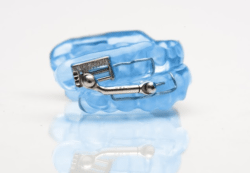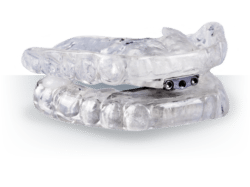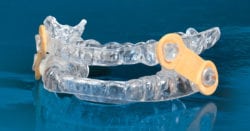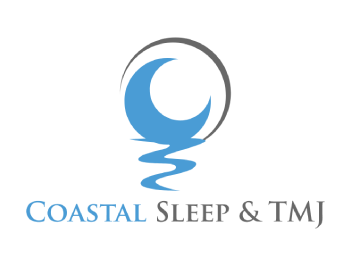Oral appliance therapy is proven by research to work when an experienced, highly trained Sleep Medicine dentist makes the appliance.
Oral appliance therapy has evolved as an alternative to the CPAP machine. Anyone diagnosed with mild to moderate sleep apnea can benefit from this alternative. Dr. Harper works with you to coordinate appropriate care. Sleep apnea treatments can vary. Treatments are based on the results of a sleep test study and the recommendation or prescription of your physician.
Dr. Harper will work with you individually to choose the right oral appliance for your needs. There are several important factors to take into consideration. For example, we will examine the structure of your jaw and the severity of your sleep disorder. We will also work with you to fully maximize your dental and medical benefits.
Patients of Dr. Harper can access our patient-only video portal to learn more about caring for and using an oral appliance.
How Does Oral Appliance Therapy For Sleep Apnea Work?
The aim of oral appliance therapy for sleep apnea is to accomplish two things:
- Open the airway to allow for proper airflow
- Maintain an open airflow by repositioning the tongue and/or jaw
Benefits of Oral Appliance Therapy
- A more convenient and comfortable solution when compared to the CPAP machine. An oral appliance for sleep apnea is similar to a custom-fit mouthguard. It prevents the tongue from collapsing during sleep, thus allowing patients to achieve proper airflow to the lungs.
- You can take your oral appliance anywhere. It’s small and compact, so you will not have to worry about traveling with a traditional CPAP machine.
- Oral appliances are cost-effective. In some cases, insurance will cover the cost of an oral appliance treatment. Speak with our team about your options during your next appointment.
- Oral appliances are less intrusive than other forms of sleep apnea treatment. You can comfortably and discreetly put on your oral appliance without sacrificing sleep quality.
An oral appliance should generally open the airway, relax the jaw muscles, and allow you to breathe comfortably throughout the night. Many devices are available, but we only choose to use them the most effectively for your needs.
Coastal Sleep & TMJ works with various vendors and will change our oral appliance options as science and technology evolve. We will only offer our patients what we consider the “best of the best”.
A few examples below demonstrate the custom fit of a sleep appliance and its resemblance to a sports mouthguard. Most patients find their sleep appliance comfortable and easy to take along when traveling, and they can drink fluids and speak clearly when it’s in place.
Herbst Advance

TAP Adjustable Appliance

EMA Sleep Appliance

How effective are sleep apnea mouthpieces?
Sleep apnea oral devices position the lower jaw slightly forward and down. This forces the airway open. These devices work for patients with mild sleep apnea. However, people with moderate to severe obstructive sleep apnea may not benefit from these devices as much as they would from a CPAP machine.
Caring for Your Oral Appliance
Taking care of your oral appliance is essential to ensure the appliance lasts long. Over time, these appliances can harbor bacteria, food debris, saliva, and more, leading to an unpleasant smell, discoloration, and potential health risks. If you don’t clean your oral appliance regularly, bacteria and other things continue to build up, putting you at higher risk over time. Heavy buildup can also compromise the effectiveness and fit of your appliance.
Daily Cleaning
Deep Cleaning and Proper Storage
Around once a week, use a denture cleaner or antimicrobial mouthwash to soak your appliance. This attacks any additional bacteria and lingering odors your regular brushing may not get. Follow the directions to ensure you’re soaking the appliance for the proper amount of time and that it won’t compromise your oral appliance. Certain denture cleaners are too harsh and can damage the appliance’s material. Avoid chemicals like bleach, too.
Oral Appliance Therapy FAQs
Oral appliances are especially effective for patients with trouble sleeping while using the CPAP. Learn more by reading the answers to these frequently asked questions.
Which is better: the CPAP machine or an oral appliance?
Oral appliance devices are an excellent alternative to a Continuous Positive Airway Pressure (CPAP) device in patients with mild to moderate sleep apnea problems. Although, in patients with severe obstructive sleep apnea, the CPAP machine is still the treatment of choice.
How long does an oral appliance for sleep apnea last?
An oral sleep appliance can last between one to two years. You can elongate its effectiveness by taking excellent care of the device and properly maintaining it. They do not last forever and may need an adjusting and routine replacement for the most effective results.
What sleep position is best for patients with sleep apnea?
Studies show that the lateral sleeping position, or sleeping on your side, is the most effective for people who snore and suffer from sleep apnea. This position puts less pressure on your airway and keeps it from constantly collapsing.
Are oral appliances for sleep apnea uncomfortable?
Oral appliances for sleep apnea are sometimes uncomfortable. They aim to reposition your jaw to open your airway so there is physical pressure while wearing the appliance.
Can losing weight help sleep apnea?
OSA can be reduced by 50% in patients with moderate obesity just by losing 10-15% of their body weight. There are still many patients with sleep apnea who require additional therapies, but weight loss is one of the best ways to reduce sleep apnea symptoms.
Schedule a Worry-free Sleep Appliance Consultation
Dr. William Harper at Coastal Sleep & TMJ offers free sleep apnea consultations for your convenience. We strive to provide affordable sleep solutions in Poquoson, Virginia, in the Hampton Roads area. Our team is focused on a collaborative approach with sleep medicine physicians to provide custom solutions. Give us a call at (757) 600-6535 today.
